Text
Fifth Post / Six of Crows and Crooked Kingdom by Leigh Bardugo
Two for one post coming at you HOT! I read these books in rapid succession and, as they are a duology, I figured it makes sense to post about them together. I confess that I am starting to fall behind with my posting... but I refuse to give-up on this self-imposed exercise!!
I’m gonna shake things up a bit here -- rather than follow my usual review format I would like to take this opportunity to present you with my thesis on:
SIX OF CROWS and CROOKED KINGDOM by LEIGH BARDUGO....

... AS VIEWED THROUGH A BROOKLYN NINE-NINE LENSE.

SO literally the entire time I was reading these books I couldn’t help but think about the recurring Halloween Heist episodes found in each season of Brooklyn Nine-Nine. You know the ones. Six of Crows centers around one big heist, while Crooked Kingdom has a series of heists that are pulled off to varying degrees of success. The key players belong to a gang called The Dregs, and I couldn’t help but notice some striking similarities between the gang members and members of the 99th precinct.
I haven’t done any internet trolling to see if this comparison already exists elsewhere, so apologies in advance if I’m not being as original and clever as I think I’m being. Also shout-out to my friends KC and JC for workshopping this IRON CLAD analysis with me. They confirmed this is legit, and I trust their judgment unwaveringly.
1. Kaz / Captain Holt
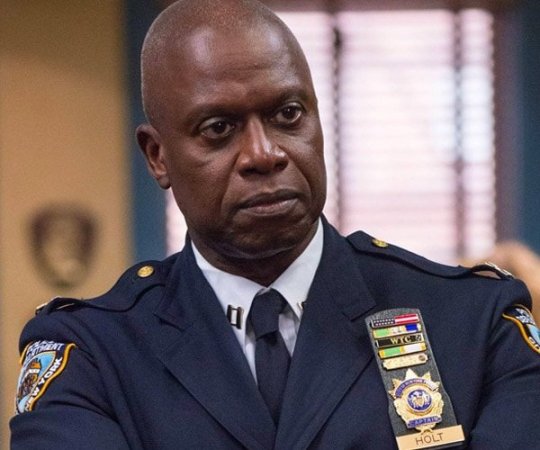
Kaz is the boss of The Dregs; Captain Holt is the boss of the 99th precinct. While this makes the parallel between the two obvious, there are deeper reasons I believe Kaz and Captain Holt are one.
Both Kaz and the Captain present a stony exterior, but they’ve got a lot more feels going on inside than they’d care to admit (to themselves or to others).
They care deeply about their crew members and would do pretty much anything to protect them.
Not opposed to tough love.
Both have had to face adversity on their climb through the ranks to the top -- the Captain as an openly gay black police officer, and Kaz as one of the youngest gang bosses in Ketterdam.
Have made enemies along the way (see: Madeline Wuntch, Pekka Rollins, the Disco Strangler, Jan Van Eck...).
And of course, Kaz and the Captain are clearly the best characters of their respective series. I rest my case.
2. Inej / Rosa
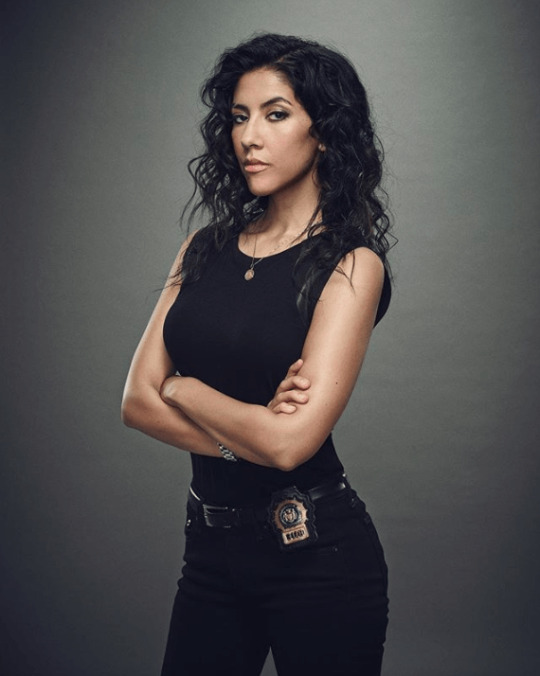
Rosa and Inej and are *the* most badass characters of their series. No one can hold a candle to these fierce femmes.
All black all the time -- Inej and Rosa have mastered the look.
Both are pros at their jobs and they’re not afraid to work hard.
Masters of the stake-out.
The secret glue that holds their crews together -- everyone would be lost without them (Boyle especially). Just look what happened that time Inej was kidnapped?!
Both have mysterious pasts -- or they are at least protective of their pasts/the details of their personal lives. No one even knew where Rosa lived for like 3 seasons. Talk about stealth mode.
Can and will kick your ass.
Admittedly Inej is has a warmer disposition than Rosa, but we all know Rosa is a softy on the inside. And okay okay, I know I said Kaz and Captain Holt are the best characters, but I might have spoken too soon....
3. Nina / Gina

Well, first of all, it rhymes -- so it must be true.
Nina and Gina are the sass-QWEENS of their series.
Witty, funny, confident, smart, beautiful, literally magic (either on the dance floor or raising the dead).
They know their worth. As I said before: QWEENS.
Unapologetically themselves.
Gina and Nina know how to indulge in the little pleasures of life and we should all take a page out of their books.
I would say Gina’s character is more selfish, whereas Nina is quite selfless (ummmm, hello, she basically sacrificed herself to get the crew out of Fjerda), but Gina has been known to be secretly thoughtful. Also: I think if Nina had a cellphone her emoji game would be on point. I dare you to disagree.
4. Jesper / Jake

Goofy.
Charming.
Daddy issues.
Good with a gun.
Bad with money.
Need I say more? No. NEXT.
5. Matthias / Terry

I think this might be my favourite parallel.
Matthias and Terry embody the older brother figure who is too cool to hang out with his younger siblings... but then somehow gets wrangled into the younger siblings’ shenanigans. And has to bail said siblings out of said shenanigans when everything goes to hell.
Older brother or mother hen?
Literal Adonis body.
Both are role models -- as fighters, leaders, warriors, and just generally noble and good peeps.
Did I mention muscles?
I wonder if Matthias loves yogurt....
6. Wylan / Boyle
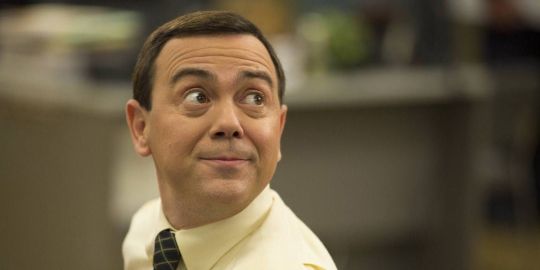
This checks out:
Both are keen to prove their chops to the team -- although they seem to be getting by on dumb luck half of the time.
Have weird relationships with their dads (different weird, but weird all the same).
Obsessed with Jesper/Jake.
Fierce ginger vibes (see: Boyle dressed as Mario Batali).
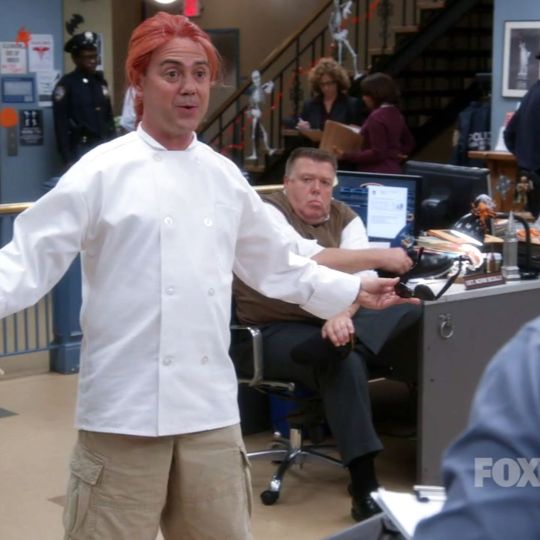
THANK YOU FOR COMING TO MY TED TALK.
#leigh Bardugo#six of crows#crooked kingdom#fiction#books#booklover#bookworm#currently reading#read more#read#Book Recommendations#bibliophile#bookporn#book addict#book post#book review#brooklyn nine nine#kaz brekker#inej ghafa#matthiashevlar#nina zenik#jesper fahey#wylan van eck
15 notes
·
View notes
Text
Fourth Post / On Earth We’re Briefly Gorgeous by Ocean Vuong
It is February, which means I made it through dry(ish) January! Which also means I’m back on my shit. This review is brought to you by:
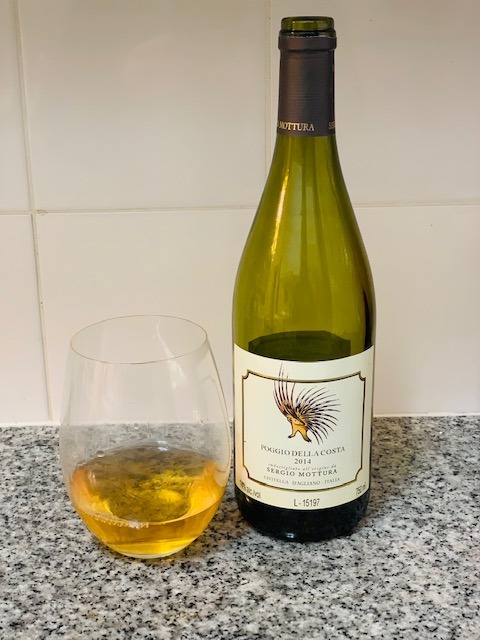
As for the subject of this week’s review, the novel du jour is my February book club read. I always wanted to be in a book club, and after moving to Vancouver I was lucky enough to meet a friend who (a) wanted to start one, and (b) had enough friends who were interested in joining that it actually became a thing. Which was great, because I had literally 3 friends in the city at the time, so I wasn’t much help in the recruitment department... I mean, I still only have 3 friends, but now I also have ~*BoOk~cLuB*~.
ON EARTH WE’RE BREIFLY GORGEOUS by OCEAN VUONG

**Spoilers ahead, read with caution**
The Premise:
On Earth We’re Briefly Gorgeous traces the life of “Little Dog”, a Vietnamese immigrant living in Hartford, Connecticut. The story is told in the form of a letter to his mother and spans from his childhood up until early adulthood. While this story is a work of fiction, my understanding is that Ocean Vuong drew heavily on his own life and experiences in its telling.
We read about the relationship between Little Dog and his mother: a single-mom who suffers from PTSD and fits of anger. She cannot read or write, nor can she speak English very well. She relies on Little Dog to help them navigate their new life in America, and while their relationship has problems, she ultimately wants what’s best for him.
We read about the relationship between Little Dog and his grandmother: Lam suffers from schizophrenia, and often confuses the present day with the past. She recounts her life in Vietnam during the war, getting pregnant with an American soldier, and eventually escaping the war-torn country with her young family. Even though her mind is half-gone, she is always loving, supportive and kind.
Finally, we read about the relationship between Little Dog and his lover: a red-neck, white boy who can’t or won’t accept the fact that he is gay. Trevor is tragically addicted to opiates after an accident in his teens led to an OxyContin prescription. The dynamic between Little Dog and Trevor is far from healthy, and borders on abusive at times.
Through this all, we get to read about and experience Little Dog’s inner workings; his reactions to these people, these relationships, and the circumstances of his life. At its heart this is a coming-of-age story, over the course of which Little Dog matures and grows into his own person -- flawed, damaged, and briefly gorgeous.
The Pros:
In reading this book, it is instantly apparent that Ocean Vuong comes from a poetry background. His writing style is highly poetic, ethereal, and is a “delight to the senses” (if I may be allowed to use one cliché phrase in this review). I do mean that in the literal sense of the phrase though -- the images, the sounds, the textures, the scents, the feelings... Vuong describes all of these elements to create a highly sensory experience for the reader. His hybrid style of poetic-prose is a big part of what makes this book so special.
For example, a passage that grabbed me early on in the book reads:
“You once told me that the human eye is god’s loneliest creation. How so much of the world passes through the pupil and still it holds nothing. The eye, alone in its socket, doesn’t even know there’s another one, just like it, an inch away, just as hungry, as empty.”
How beautiful is that!? It leaves such a sad, hollow feeling in me to think about -- which is not necessarily a feeling I’m looking for, but the fact that Vuong can write something so powerful that I am made to feel that way is a testament to his talent.
Speaking of the feels, I was in tears on more than one occasion in this book. All of the characters in this book carry a sadness with them, and for good reasons. Everyone has a tragic past, and it seems like those pasts continue to haunt them presently. Through this darkness, though, there are moments of light and beauty and love. Little Dog seems to reflect on the difficulty of experiencing such highs and lows, at page 122:
“Do you remember the happiest day of your life? What about the saddest? Do you ever wonder if sadness and happiness can be combined, to make a deep purple feeling, not good, not bad, but remarkable simply because you didn’t have to live on one side or the other?”
This book was definitely not a deep purple sort of book, but it was remarkable all the same. I couldn’t help but become emotionally invested in the lives of these characters, and the words Vuong used to so vividly create them.
The Cons:
I was initially doubtful this book would appeal to me, as it doesn’t fit neatly into the categories of books I am typically drawn to. While I am now glad to have read this book, one thing I did find challenging about it was the sheer number of issues it sought to address. Over the course of only 243 pages we read about:
1. war;
2. PTSD and other mental illnesses;
3. racism and the immigrant experience;
4. homophobia and the gay experience;
5. abuse;
6. addiction and the opioid crisis; and
7. death;
.. to name a few! You could have a whole book about just one of these topics, let alone all of them.
I do think Vuong’s writing style enables the reader to consume these serious themes more easily than one otherwise would; because his prose is so beautiful and light (the words almost seeming to float off the page) it counterbalances the weightiness of these topics. But all the same, for my personal tastes, I think I would have enjoyed this book more if Vuong had focused on a few of these topics rather than overburdening the reader with so much to process. I appreciate that in real life some people do have tragedy upon tragedy befall them, and that their lives are filled with a heaviness that they didn’t get to choose. But this is supposedly a work of fiction, and the beauty of fiction is that, as the author, you do get to decide what happens to your characters. So maybe cut them some slack?
The Final Take-away:
This is not a book I would have chosen for myself to read, but that is one of the best things about being in a book club -- it exposes you to authors and stories you might not otherwise be. Despite my initial reservations, On Earth We’re Briefly Gorgeous was an excellent read. “Gorgeous” is really the perfect word, as everything about Ocean Vuong’s story-telling was beautiful. Even the ugly bits. I don’t think this is a book for everyone -- it can be a bit abstract at times and deals with a lot of frankly depressing material. But if you have any sort of appreciation for the beauty of words and all the journeys they can take you on -- including those journeys into dark, difficult places and feelings -- then I’d give this book a try.
#on earth we're briefly gorgeous#ocean vuong#fiction#books#booklover#bookworm#currently reading#read more#read#book recommendations#bibliophile#bookporn#book addict#book post#book review
1 note
·
View note
Text
Third Post / Ninth House by Leigh Bardugo
Holy heck am I excited about this book! My dear friend and fellow book-nerd loaned it to me around Halloween, and I remember her saying spooky-season would be a good time to read it. Unfortunately, the book just wasn’t calling to me. I read the first chapter and then abandoned it for months.
Well aren’t I glad I gave it a second shot! ...or maybe the book was the one that gave me the second shot? Either way. Gladness ensued. Although now I have to wait a year for the next book to come out. Frankly, that is just rude -- PARTICULARLY given the cliff-hanger this story ended on!
Read on if you’d like to know more about:
NINTH HOUSE by LEIGH BARDUGO
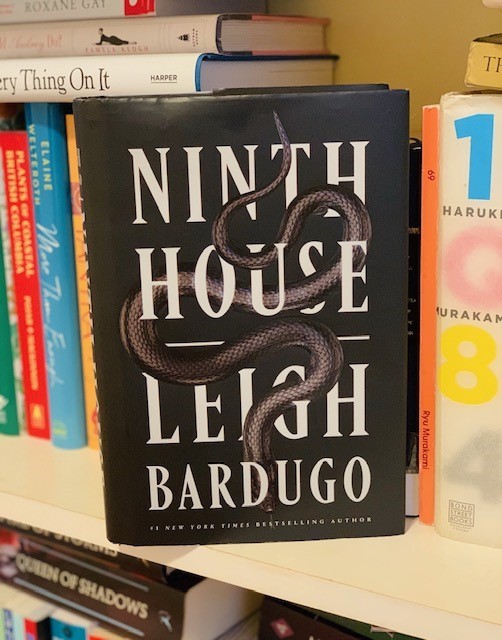
**Spoilers ahead, read with caution**
The Premise:
Alex Stern has somehow landed herself at Yale University with a full-ride scholarship, notwithstanding the fact that she is a high school drop-out and the lone survivor of a mysterious triple homicide. Oh yeah, and she sees ghosts (referred to as “Grays”). It’s actually because of this latter fact that she was recruited. For at Yale there are secret student societies, established over a hundred years ago, that do more than just throw exclusive parties and help their members get fancy jobs after graduation. They also do magic.
Take for example Skull and Bones, whose members can divine future trends in the stock market by reading human intestines. Or Wolf’s Head, known for the practice of therianthropy (aka shapeshifting). As for Manuscript, their magic is that of mirrors and glamour. In total, there are eight secret societies -- called “Houses of the Veil”. Alex belongs to the ninth house: Lethe. Lethe draws on borrowed magic from the other eight houses and its purpose is to keep the other houses in check. Her job, along with senior Darlington and researcher Dawes, is to ensure nobody gets hurt and that no one else at Yale finds out about the houses’ occult on-goings.
But when Darlington goes missing and a girl gets murdered on campus, Alex’s past starts to catch up with her. To get to the bottom of these mysteries and hold those responsible to account, Alex must make unlikely alliances and tap into her own darkness -- even if it means giving up her chance at a new life.
The Pros:
The strongest aspect of this book, in my opinion, was the character development -- not just Alex’s, but the supporting cast as well. Dawes, the researcher of Lethe, starts out as an unapproachable and awkward figure. After Darlington goes missing, Dawes and Alex begin to form a tentative bond which continues to strengthen after each harrowing experience they go through together. There are also several chapters told from Darlington’s perspective, which provided insight into the complexities of his character. From Alex’s perspective, he is this perfect, privileged golden-boy. But through his own eyes, Darlington tells a narrative which is far lonelier and more tragic than the composed façade he presents. There is also a Gray, known as the Bridegroom, who I actually found to be one of the most intriguing characters of the entire book. I could never quite tell how he was going to act next, and I never felt like Alex could fully trust him, even when his motivations brought him into alliance with her.
As for Alex, I enjoyed reading about her struggle to reinvent herself at Yale and the near constant conflict she was in with her former self. In the story, Alex’s inner-journey is externally symbolized by her tattoos (of which she has several). When she first arrives at Lethe headquarters, Darlington initially works some magic to cover them all up. She is left with unmarked skin -- a literal fresh start. By the end of the story, however, Alex makes the decision to remove the glamour hiding her tattoos and to own her past. It is an acknowledgement that one can’t simply erase the past -- that we are the sum of our parts, of our experiences, and that we can only move forward with our lives once we have embraced that truth.
Because Leigh Bardugo attended Yale herself and had first-hand experiences there, I also enjoyed the fact that she was able to weave a lot of fact into this decidedly fictional story. I definitely Googled “Yale Secret Societies” in the middle of reading this book and had fun looking at actual pictures of the tombs Bardugo described. It gave me, as the reader, this sense that perhaps magic *could* exist there -- that perhaps it’s not so great a stretch of the imagination. If the secret societies and their mundane histories are real, after all, why can’t the fantastical elements be real too?
The Cons:
Overall I enjoyed this book, so I am nit-picking when it comes to my cons. That being said, one aspect of the story-telling that I found a bit tiring was the frequency with which Alex found herself getting beaten-up, sexually assaulted or taken advantage of, and just generally being in near-death situations. I felt exhausted for her and for myself. I just wanted her to have a moment to breathe and maybe sleep for a bit, you know??? The action packed narrative certainly kept me turning the page, but like a good DJ set, you need bring the tempo down every once in a while before you build your audience back up for the big bass drop. Sometimes this book felt like bass drop, after bass drop, after bass drop.
I also found elements of the plot to be a bit predictable. The narrative is told in a manner that has the reader jumping back and forth in time (from Early Spring to Winter to Last Fall), which does lend itself naturally to some connecting-of-the-dots. And it’s not to say there were no surprises -- I did not see the big character reveal towards the end of the book coming at all (I won’t spoil that part). But in terms of what happened on the night of the murders, I feel like that wasn’t all that shocking. The recounting of that memory was still great to read (who doesn’t love revenge?!), but I just... saw it coming.
The Final Take-away:
You know its a good book when you instantly start Googling when the sequel is going to come out after you finish reading it. Which is what I did with Ninth House. So yeah, it’s good. While this book is not for the squeamish reader, if you have any sort of interest in the occult or paranormal then I would recommend it for you. Alex is a lovable, badass protagonist-extraordinaire, and I’m excited to read about her adventures in the next installment. Annnnytime now Leigh. Anytime. Thatwouldbegreat. Thanks.
#ninth house#leigh bardugo#fiction#books#booklover#bookworm#currently reading#read#readmore#book recommendations#bibliophile#bookporn#bookaddict#book post#book review
6 notes
·
View notes
Text
Second Post / Night Circus by Erin Morgenstern
Wow, I’m actually making a second post! Praise Satan! (or whichever cosmic force is working to keep this momentum going -- it’s Aquarius season so that could be it too).
The second book I read in 2021 was a very thoughtful Christmas gift:
NIGHT CIRCUS by ERIN MORGENSTERN
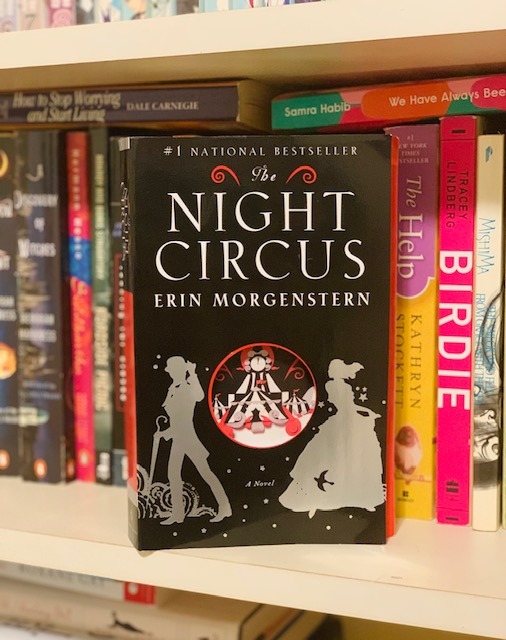
**Spoilers ahead, read with caution**
The Premise:
Celia Bowen is the daughter of Prospero the Enchanter, a once great magician, who has inherited his talent for magic. Marco Alisdair, an orphan, is whisked away by a mysterious man in grey to study and learn all the magic books have to offer. Though Celia and Marco have never met, their lives are intertwined by a wager struck between their magical instructors -- a competition of constant one-upsmanship that Celia and Marco must dedicate their lives to.
The venue? A circus, open from dusk to dawn, with each attraction more fantastical than the last. What the patrons of the circus don’t realize is that the illusions they see are real, and that each tent is fueled by the magic of Marco and Celia. The circus is their stage, and all who work there or interact with it are collateral.
Things begin to take a turn when Marco, who recognizes Celia as his competitor, reveals himself to her. The pair fall in love, but it appears to be star-crossed... For there is only one way the competition can end, and it doesn’t involve both of them walking away. A series of unfortunate events unfold and to save the circus Celia and Marco must enlist the help of their friends -- friends who have become family, and the circus which has become their home.
The Pros:
The highlight of this novel was undoubtedly the creativity that Erin Morgenstern brought to each magical tent hidden away in the circus. Marco and Celia take turns creating new attractions with their magic, and some of the things they think of are truly spectacular.
For example, one tent encloses a garden made entirely of ice. But even though the flowers are made of ice, they smell as fragrant as any real flower in bloom. Another tent encloses a maze made from cloud-like platforms that are ever ascending. Visitors climb the platforms to reach the top, and at any point they get stuck or wish to exit the maze they can jump off the side, floating gently down to safety. Yet another tent, which is actually the creation of a character named Widget, houses jars of various shapes and sizes which each contain a different scent memory. Visitors open a jar, smell the scent contained within, and an image or memory is brought to their mind -- usually pleasant, but occasionally jarring (pun not intended).
I think my favourite tent was the Labyrinth. This was a collaboration between Celia and Marco in which they took turns adding magical chambers to the tent. Visitors would have to figure out how to navigate through the chambers to reach the next one, and each chamber was different than the last. One door led to a snowy winter scene, which connected to a room full of books suspended from the ceiling, which then exited onto a white sand dessert with an endless starry sky. I liked that this tent was a way of Celia and Marco rebelling against the competition, by using their magic to work together instead of against one another, and to make something beautiful.
The Cons:
In the same way that the circus was the venue to showcase Celia and Marco’s magic, this book seemed to me like a venue to showcase a variety of disparate scenes the author wanted to write about. The plot connecting them all together felt like more of an after thought than the driving force of the novel, which was unfortunate. There were just too many storylines and too many characters that it was hard to feel particularly engaged with anything or anyone. It felt like a “pretty” story, meant to paint pretty pictures in the readers’ minds, but if there were any deeper themes embedded therein I didn’t pick up on them.
Additionally, I found the pacing of this story to be quite slow overall; the book is over 500 pages long, and I didn’t feel like things got really exciting until the last 100 pages or so. In terms of structure, the story in broken into 5 parts -- though to be honest, I didn’t really see the point of dividing it this way. Each chapter of the story shifts perspective between several different characters (not just Celia and Marco) and the timeline jumped forwards and backwards frequently; this had me repeatedly flipping back to the start of a chapter to confirm which year we were in as things got a bit confusing.
Also interspersed between some of the narrative chapters are little vignettes of “you”, the reader, walking through the circus. I suppose this was meant to be immersive and offer some foreshadowing as to what was coming next, but I found these breaks to be distracting. While there’s a cute moment at the end when “you” leave the circus, I didn’t think that moment was enough to warrant the inclusion of that arc in what was already an overly-long novel.
The Final Take-away:
Overall, Night Circus was an OK read, but not necessarily one I would go out of my way to recommend. If you’re into Victorian-era aesthetics there is certainly some beautiful imagery Erin Morgenstern creates. The magic is also fun and was at least enough to keep me reading to the end. But in terms of plot or character development, I feel like it took way too long to get to the juicy bits and even the juicy bits weren’t that compelling. I think there are likely better books out there that do what Night Circus attempts to do, but I won’t judge you if you’re still curious to give Night Circus a try.
#night circus#erin morgenstern#fiction#books#booklover#bookworm#currently reading#read#read more#book recommendations#bibliofile#bookporn#bookaddict#book post#book review
0 notes
Text
First Post / The Vanishing Half by Brit Bennett
Despite the name of this blog, I’ve started out 2021 by *attempting* to complete a dry January. Accordingly, my inaugural post will be simply “book” and no wine. Frankly, it is likely due to the lack of wine in my life that I had the sudden ambition to start a blog. It’s really the only explanation, as I am usually full of inspired ideas that amount to little or no action. While there is an excellent chance this endeavor will be abandoned when groundhogs across the globe emerge to see (or not see) their shadows, hopefully by the time February hits posting here is a habit that drunkenness does not deter me from (optimistic of me, I’m aware).
My goal is to post about all the books I read this year; this is mostly for my own enjoyment, and as a record of my year in books, but I do hope someone out there looking for a book recommendation might one day find some use in reading these reviews... did I mention I was an optimist? And yes, I know Goodreads exists, but Tumblr is prettier so here we are.
So, without further ado, the first book I present for 2021 is:
THE VANISHING HALF by BRIT BENNETT
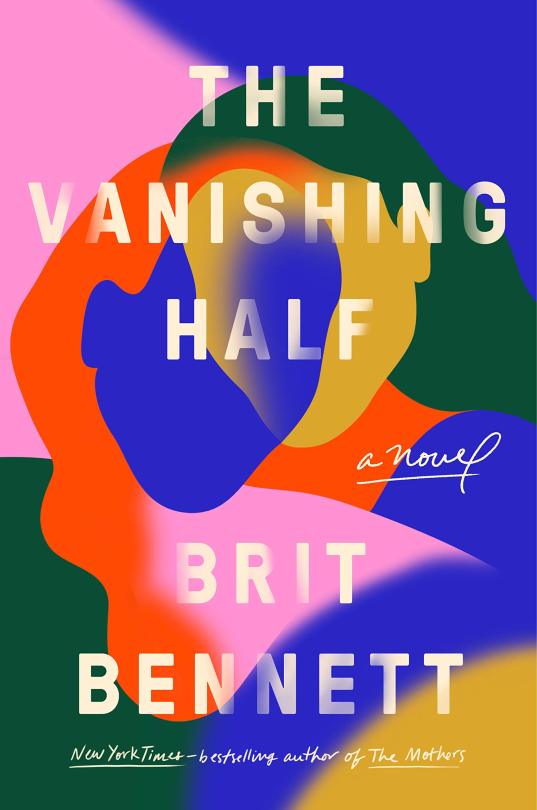
**Spoilers ahead, read with caution***
The Premise:
Desiree and Stella Vignes are twins. Where Desiree is unabashed, Stella is reserved; where Stella possesses book-smarts and a desire to go to college, all Desiree wants is to get out of their tiny town of Mallard, Louisiana -- a town where the inhabitants are overwhelmingly fair-skinned African Americans (the Vignes twins included). Desiree believes she knows her twin, but Stella has secrets -- the biggest one being that she has passed for a white person before, and she intends to do it again. And when she does do it again, she doesn’t come back.
Jump to several years later and we are introduced to Desiree’s daughter, Jude. Jude’s skin is described as “blue-black.” She takes after her father’s darker tones and is made to feel less-than when Desiree, fleeing domestic abuse, brings young Jude back to her hometown of Mallard. It is only when Jude escapes Mallard herself that she meets Reese, a trans-man, and they are able to help one another see the beauty in themselves.
Finally we meet Kennedy, Stella’s blonde-haired and blue-eyed daughter. She is privileged, spoiled and an aspiring actor. She doesn’t know about her mother’s heritage, and consequently her own. But when Kennedy’s path crosses with Jude’s she is determined to discover the truth.
The Pros:
This story takes places over decades -- going back to the 1950′s and lurching forward well into the 1980′s. It is also divided into 4 parts, each part being told from the perspective of (or focusing on) one of the main characters. I found the jumps in time and focus to be an engaging and effective means of unravelling the narrative. It kept the story feeling fresh and allowed you to see how the various characters perceived themselves, as well as how they were perceived by others.
My favorite character was hands-down Jude. The reader is introduced to her as a young child from Desiree’s perspective in part 1. By part 2, Jude has graduated high school and is moving away to college. We learn about the bullying she endured and the loneliness of her childhood in Mallard. Anyone who has ever been othered or starved for attention and love can immediately empathize with her experience. When she meets Reese, it is heart-breaking to read how utterly convinced she is that she is not attractive, that he could never want her, based on the years she had that message reinforced in her mind. Reading about Reese’s trans-experience, particularly in the 1970′s, also added another dynamic layer to their arc.
I loved how gentle Reese and Jude were with one another, and how their relationship and love grew in such a slow, organic way. It was wonderfully pure. The tenderness they found in one another filled my shriveled heat with joy -- that they, despite their challenging pasts, were able to find and support one another.
The Cons:
While Jude was an entirely sympathetic character, I can’t say I felt the same about Stella. Admittedly, her decision to run-away and pass as a white person is the driving force behind the entire novel; however, I think the impact of that decision on the other characters was more interesting to read about than Stella herself.
Stella comes across as selfish, fearful and weak. When I was reading her part, it felt like something to get through rather than to enjoy. I just wanted to shake her! A particularly painful scene to read was when Kennedy, as a young child, calls the black girl she is playing with across the street the N-word -- a word the child doesn’t know the meaning of and has clearly learned from Stella. The two girls do not play together again.
It seemed like the author tried to give Stella some redemption towards the end of the novel, when she finally tells a now grown-up Kennedy the truth about her past. However, she only tells Kennedy the truth after Kennedy has literally been asking her about it for years and Stella has continuously denied everything. I guess you have to respect Stella for her commitment to the lie. Ultimately, however, Stella comes across as a sad person who is trapped in a cage of her own-making.
The Final Take-away:
After the first 80 pages or so I could not put this book down. The characters were highly compelling (even the ones I didn’t like) and the issues explored felt important. As a cis-gender white woman, I also think it necessary to read books by authors from backgrounds different than mine -- this book certainly exposed me to the different lived experience of these characters, particularly with respect to racism, colourism and light-skinned privilege. While a work of fiction, it is often through fiction that the deepest truths can be explored. I’m so grateful to Brit Bennet for writing this story and would have no hesitation in recommending it people looking to engage with these themes. In the end, the Vanishing Half is a truly human story about flawed people and the consequences their decisions have on those they love.
#the vanishing half#brit bennett#fiction#books#booklover#bookworm#currently reading#read#readmore#book recommendations#bibliophile#bookporn#bookaddict#bookpost#book review
3 notes
·
View notes